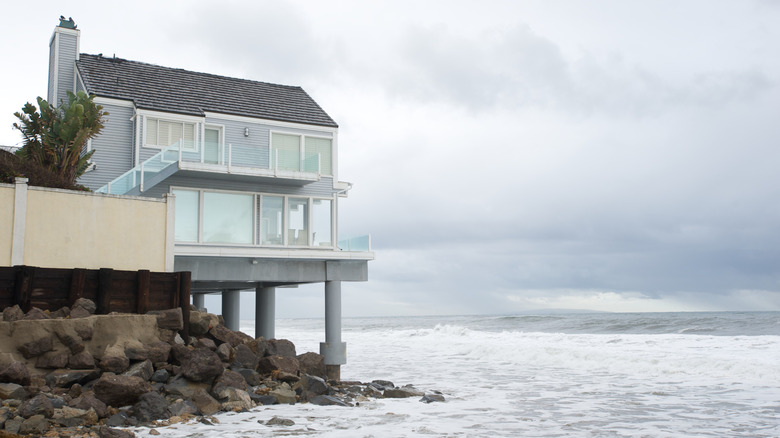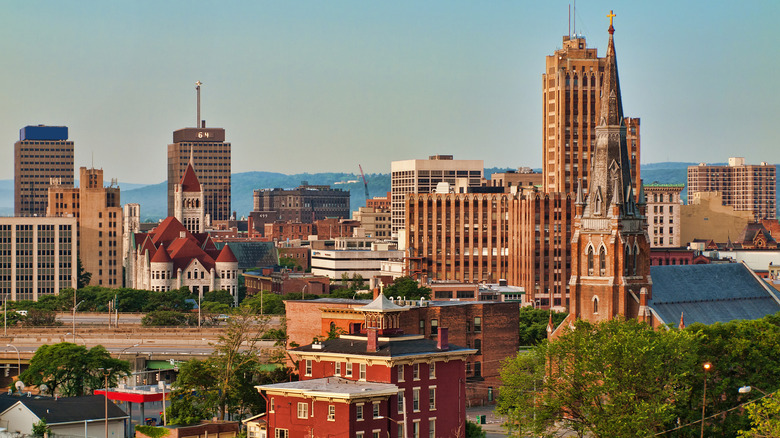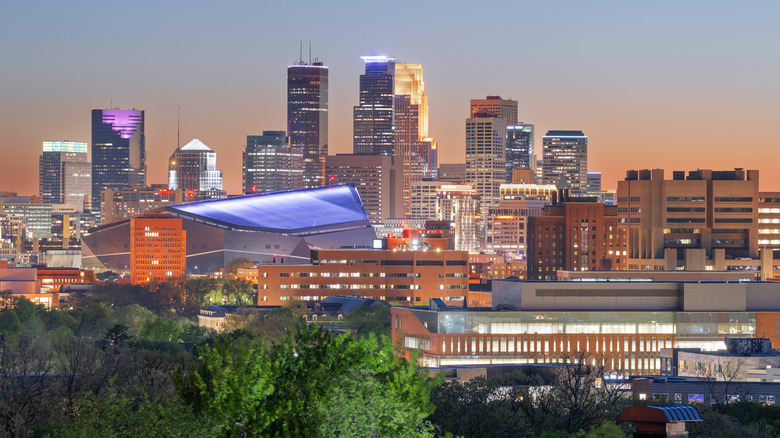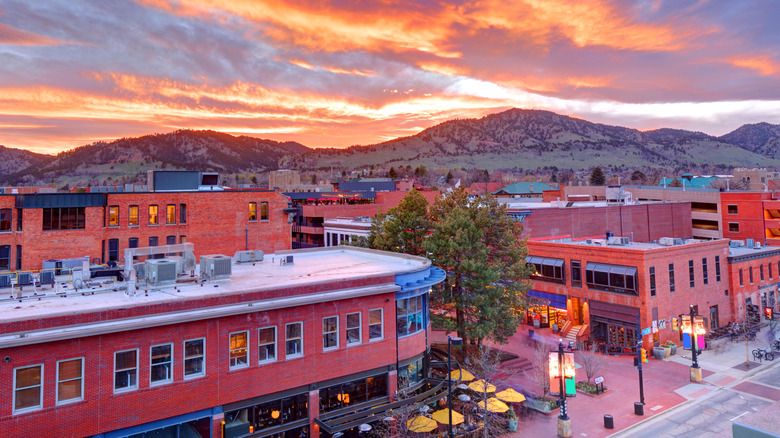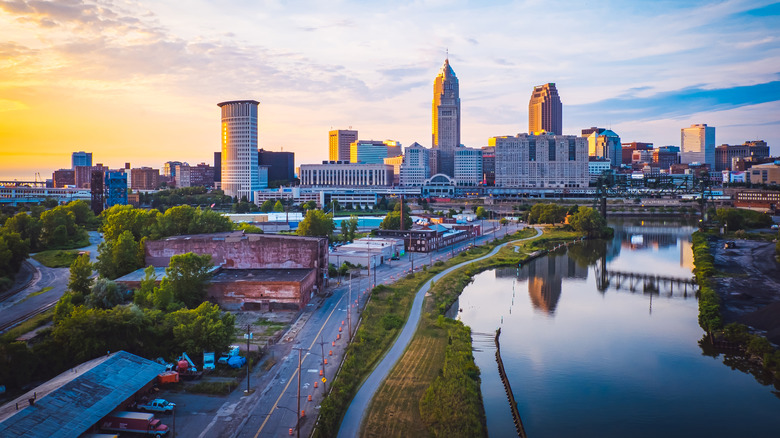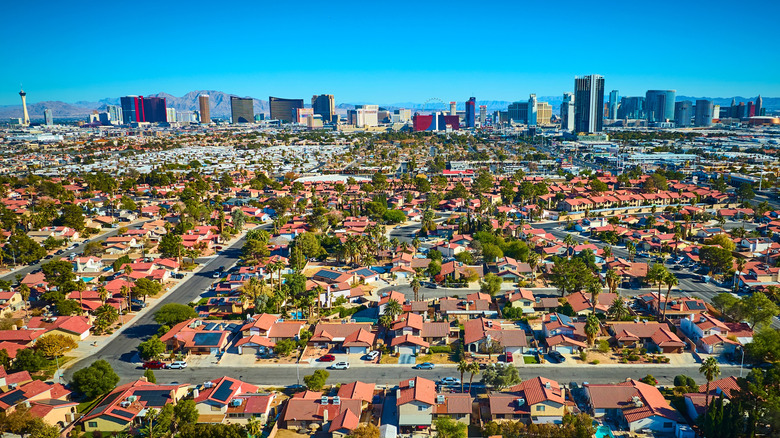The Best Places To Live In The US If You Want To Avoid Natural Disasters
When considering the best places to live in the United States, most people tend to consider available job opportunities, the quality of schools in the area, or the cost of living. However, with the rise of extreme climate unpredictability, it is crucial to ask some key questions when deciding where you want to live: Is this place safe from natural disasters? Can I live here without constantly checking the weather radar, or worrying about evacuations?
From horrible cases of floods and hurricanes to appalling instances of wildfires and earthquakes, it has become exceedingly important for Americans to consider the safest cities to avoid such natural disasters. Now, the good news here is that there are several places you can live in the U.S. to enjoy a relatively safe and stable lifestyle tucked away from disaster hotspots. Even though no place is entirely free from experiencing hazardous weather conditions, some locations are better protected or equipped than others. So, whatever your reason for relocating — whether for work, retirement, or family — the following are some of the best American cities to live in if you want to avoid natural disasters.
Syracuse, New York
Syracuse ranks among the safest cities to avoid natural disasters in the U.S., as upstate New York rarely experiences disastrous cases of tornadoes, hurricanes, earthquakes, or wildfires. While Syracuse may experience heavy snowfall and blizzards, the city is buffed with necessary measures to manage snow and ice, reducing the possibility of weather-related disruptions. In fact, the Syracuse Regional Airport Authority won an aviation award in 2025 for its effective snow and ice control after the airfield was closed for just three hours over the entire winter season despite 18 significant snowfall events (per CNY Central). In a nation plagued by natural hazards that have cost billions of dollars, Syracuse has been able to remain a low-risk zone.
Beyond its safety from climate disasters, Syracuse's bustling atmosphere, affordable housing, and top-tier schools make it stand out as a particularly liveable city. Even if you're looking forward to enjoying some outdoor adventure experiences, the Finger Lakes and the Adirondack Mountains are two interesting destinations you can visit close to the city.
Minneapolis-St. Paul, Minnesota
Known as the Twin Cities, Minneapolis and St. Paul can be a great consideration for those seeking to live with less fear of nature's wrath. Being inland, the region is virtually safe from hurricanes and floods, and earthquake occurrences are very rare. Also, the cities are built to combat brutal winter conditions, with snow removal systems and heating infrastructure in place to avoid issues that can emerge from harsh seasonal weather. Wildfires and tornadoes are quite infrequent in Minnesota, but the state has some programs and agencies set up to manage these situations if they arise, such as the Minnesota Interagency Fire Center (MIFC).
Minneapolis and St. Paul have an abundance of scenic natural features in and surrounding the cities. These include lakes, trails, waterfalls, and green spaces. The area has an efficient public transportation system and is home to several Fortune 500 companies and acclaimed universities.
Boulder, Colorado
Boulder is another city to consider for those seeking the best place to avoid climate disasters. Boulder is naturally protected from issues related to rising sea levels, hurricanes, and major floods, thanks to its high-altitude inland location. Earthquakes are uncommon too, and although wildfires can be a concern in Colorado generally (even doubling in the past 20 years), Boulder has put in place some key strategies to mitigate the risks. One such government strategy is the Community Wildfire Protection Plan (CWPP), which is funded by Boulder's Climate Tax and has several functions, from public outreach and education to making structures more resistant to fire damage.
Boulder's beautiful natural landscape, coupled with its eco-conscious lifestyle and bike-friendly streets and trails, offers an enjoyable opportunity for outdoor-loving people. If you enjoy hiking, camping, wildlife viewing, or scenic drives, you'll have direct access to Rocky Mountain National Park for challenging hikes and other weekend adventures.
Cleveland, Ohio
Nestled on the southern shore of Lake Erie, Cleveland, Ohio has few very natural disasters, with the state only recording 21 calamities from 2004 to 2024. The city isn't prone to hurricanes, earthquakes, or wildfires, and only 18 cases have been recorded since 1950. Although winters can be very cold, the city is well-prepared with adequate snow infrastructure, crisis plans, and responsive emergency services.
Cleveland's access to freshwater (sourced from Lake Erie), and distance from the oceans further make it an attractive choice for relocation. Certainly, the city doesn't only offer a sense of safety from natural disasters. From the availability of affordable housing to the ease of walkable neighborhoods where you don't need a car to the presence of major medical centers and a thriving creative community, it is clear that retirees, families, and young professionals can enjoy a comfortable lifestyle in Cleveland. Outdoor enthusiasts will love the proximity to Cuyahoga Valley National Park, and music lovers will love living near the Rock & Roll Hall of Fame. There are also lots of budget-friendly reasons not to snub this Midwestern city.
Las Vegas, Nevada
Beyond being known as "Sin City" for its bustling nightlife casinos, and live performances, Las Vegas, Nevada is ranked as one of the safest major U.S. cities in terms of climate disasters. Vegas is located in the Mojave Desert — one key reason why it is well-protected from tornadoes, hurricanes, and severe flooding. Despite the fact that wildfires occur in surrounding areas, the city of Las Vegas itself hardly faces such serious risks.
Furthermore, Las Vegas experiences sunshine, year-round, offering a perfect environment for those who love being outdoors. Also, there is no state income tax, and the city's economy is rapidly diversifying beyond gaming and tourism, with marked growth and career opportunities in technology and healthcare. Nature lovers would find it fascinating to visit natural attractions like Lake Mead and Red Rock Canyon around Las Vegas. Residents can also enjoy weekend trips to parts of California, Arizona, and Utah thanks to its location.
